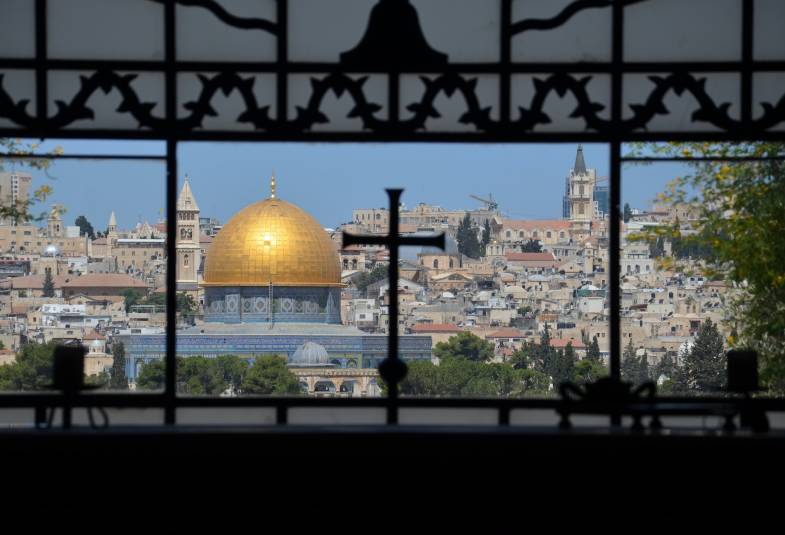19/10/2023

The Archbishop of Canterbury has begun a pastoral visit to Jerusalem, following the explosion at the Anglican Al-Ahli Hospital in Gaza.
The intention of the short visit is to offer solidarity to the local Anglican church, and particularly the Anglican Archbishop in Jerusalem, the Most Revd Hosam Naoum. Archbishop Justin Welby arrived in Jerusalem late this afternoon.
During his visit the Archbishop will meet other Christian leaders in Jerusalem. He will be shown some examples of practical service offered by Christians to their wider communities.
The Archbishop also hopes to meet with some religious Jewish leadership and renew an appeal for release of hostages, as well as offering sympathy and condolences for Israeli victims of the Hamas terror attacks.
A Lambeth Palace spokesperson said today: “The Archbishop is undertaking a pastoral visit to Jerusalem. This a crucial time for all of us to show solidarity and care to those impacted by this war. At heart of the Christian faith is the idea that the church is one body. When one part of the body suffers, we all suffer. Being alongside our fellow Christians, to listen, share and support is central to our faith. We are praying constantly for all who suffer in the Holy Land.”
Since the 7th October atrocities in Israel, the Archbishop has repeatedly condemned the terrorist attacks by Hamas. He has also expressed grave concern at the loss of life in Gaza, called for aid to reach its civilian population, and for international humanitarian law to be upheld. He has urged Christians around the world to pray for the Church in the Holy Land, and for all innocent people caught up in the war.
In a statement yesterday, the Archbishop said: “The evil and heinous terror attacks by Hamas on people in Israel were crimes against God and humanity. Israel has a legitimate right and duty to defend itself, and to pursue a proportionate and discriminate response to establish its security. The rules of war are there to safeguard civilians and the value of every human life. They must be upheld to the highest degree possible amidst the chaos of conflict, otherwise the cycle of violence will continue for generations to come.
“Israel’s bombing campaign on the heavily populated Gaza Strip is causing massive civilian casualties and suffering. The people of Gaza are running out of water, food, medical supplies and places of refuge. Families in Israel and around the world still wait for news of their loved ones. It is unconscionable that aid is being prevented from reaching children and adults who are not combatants in this war. It is indefensible that hospitals, schools and refugee camps are being struck. It is an outrage that hostages are being held by Hamas. The bloodshed, slaughter and suffering of innocent people on all sides must stop.”
He added: “What we know for certain is that this violence will not secure for the people of the Holy Land the future they deserve. In the name of Jesus Christ, I urge a different path – one that spares innocent lives and pursues justice, security and lasting peace for all.”
Background:
This is the third visit that Archbishop Justin Welby has made to Jerusalem since taking office in 2013. He first visited in 2013, and again in 2017, as part of wider visits to Israel and the Occupied Palestinian Territories.
The Archbishop has made numerous statements on the war in Israel and Gaza since the Hamas terror attacks on 7th October. They can be read here.
The Episcopal Diocese of Jerusalem is home to about 7000 Anglicans worshiping within twenty-eight different congregations. It is also responsible for more than thirty institutions, including hospitals, schools, clinics, rehabilitation centres, guesthouses, and retirement homes. Archbishop Hosam Naoum oversees all of these parishes and institutions, which are scattered across five separate countries or territories: Jordan, Palestine, Lebanon, Syria, and Israel.
The Diocese of Jerusalem also sponsors a number of other ministries. The Diocesan Department for Peace, Reconciliation, and Interfaith Dialogue, for instance, was established in 2007. It encourages participation in the Jerusalem Peacebuilders program and supports other interfaith peace-building efforts.